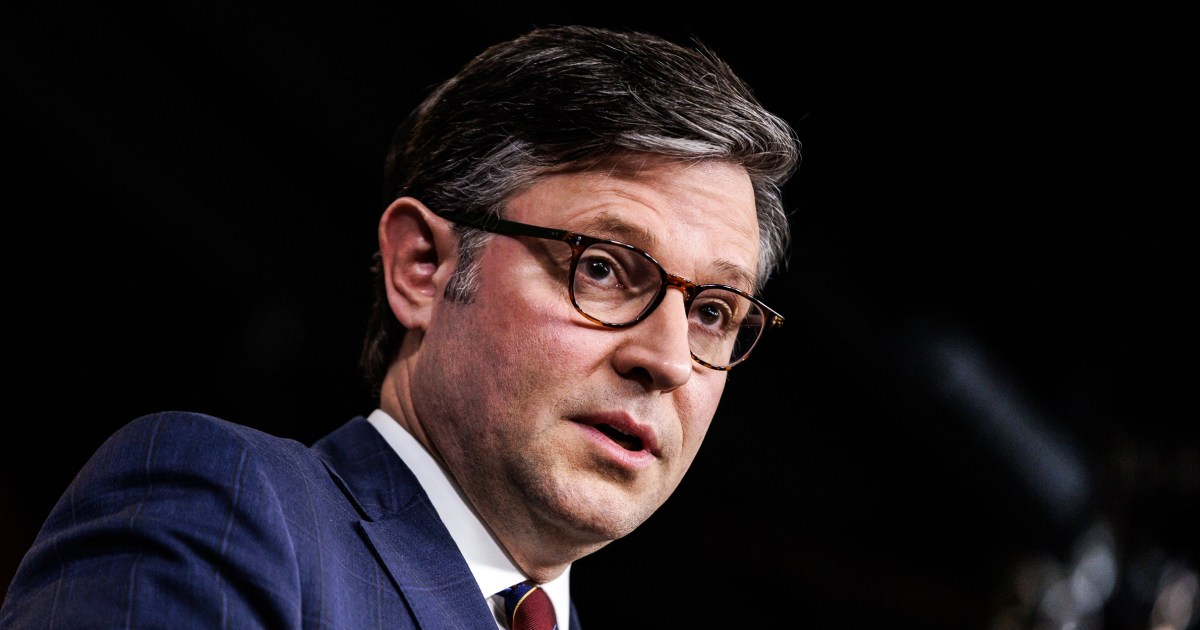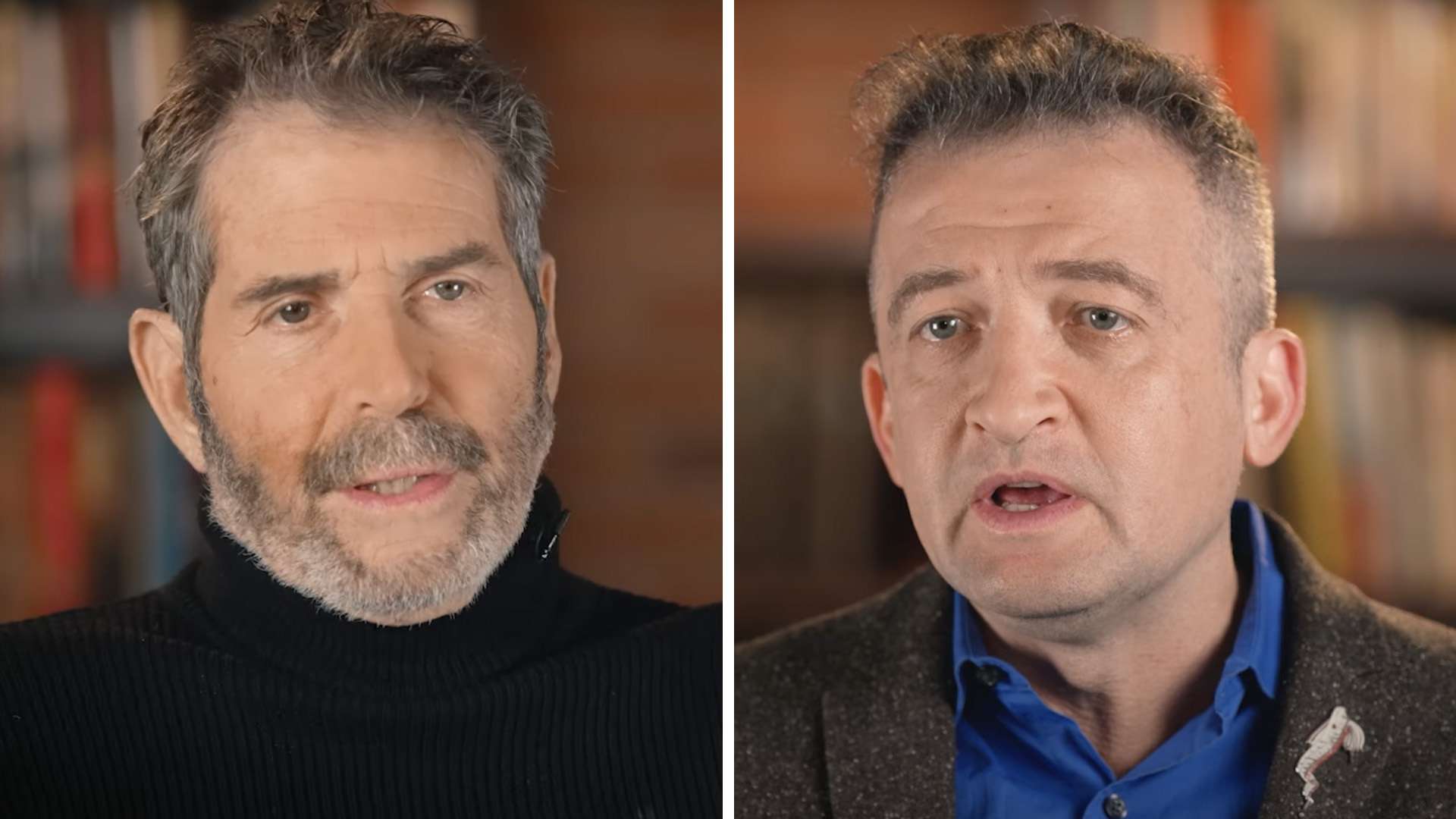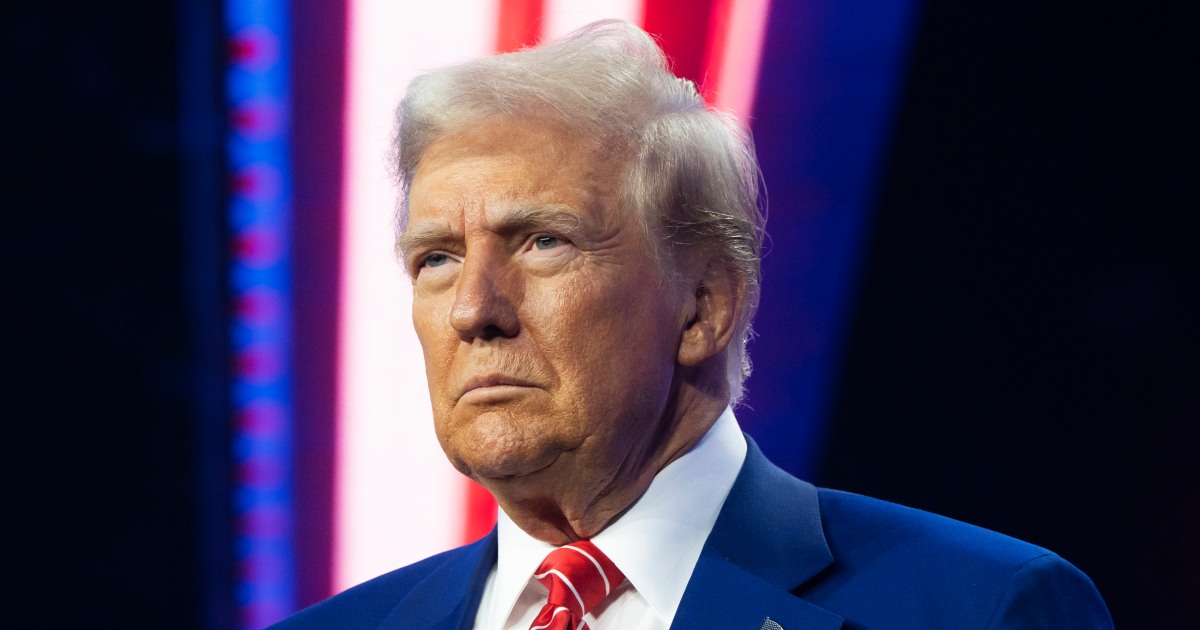If you expressed “negative sentiment” toward insurance companies on social media following the murder of UnitedHealthcare’s CEO last month, the government was watching.
“Following the shooting, the New York State Intelligence Center (NYSIC-CTC) identified a large amount of negative sentiment towards healthcare executives and health insurance companies on social media,” a bulletin produced by a regional intelligence group on December 12 says. The bulletin goes on to warn of “users online wanting to counter ‘corporate greed’” as well as “growing negative sentiment around conglomerates, the wealthy, and executive staff at private and public organizations.” Setting aside the yeah-no-shit factor, the report provides rare insight into how the government threat machine stokes fear among law enforcement agencies across the country.
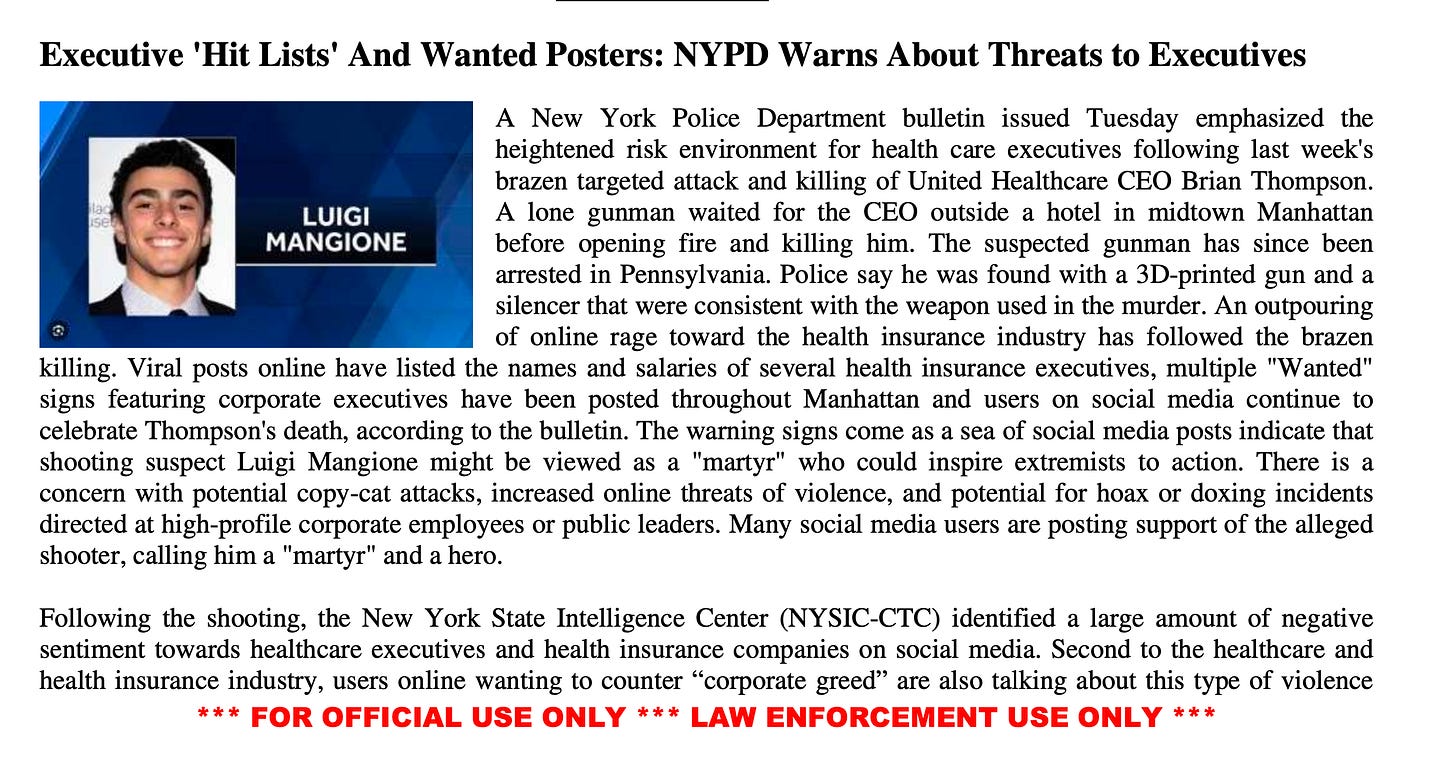
The document is one of a flurry threat reports quietly circulated to law enforcement across the country by a sprawling network of little-known intelligence organizations created in response to 9/11. Called fusion centers, groups like the New York State Intelligence Center were tasked with fighting terrorism, which alleged the killer Luigi Mangione was charged with. Today, there is at least one fusion center in all 50 states (even Wyoming, home to the Wyoming Information Analysis Team.)
Marked “LAW ENFORCEMENT USE ONLY,” the document quoted above is, like other intelligence reports, not usually available to the public. But this record was pried loose by the open records wizardry of the transparency nonprofit Property of the People. Without them, this report would join the countless others exempt from public scrutiny. That’s a real gift to the government agencies that produce these reports, which often serve little purpose beyond inflating supposed threats into zeppelin-like proportions.
Consider, for example, the report’s boldfaced title —“Executive ‘Hit Lists’” — evoking some kind of John Wick-style serial hitman. But the evidence for this amounts to “viral posts online” that “listed the names and salaries of several health insurance executives” and some “Wanted” signs posted in Manhattan. The repeated references to online discourse (e.g., “a sea of social media posts indicate that shooting suspect Luigi Mangione might be viewed as a martyr”) leave the impression that the intelligence analyst does not understand the first rule of online: it isn’t real life.
To give a sense of just how many of these kinds of reports are pinballing around the law enforcement world, here’s one produced by the Southern Nevada Counter Terrorism Center (SNCTC) and also obtained by Property of the People. Like the New York bulletin, this one also focuses on “online rhetoric” expressing “criticism of the public health care system and corporate executives.” Sound familiar?
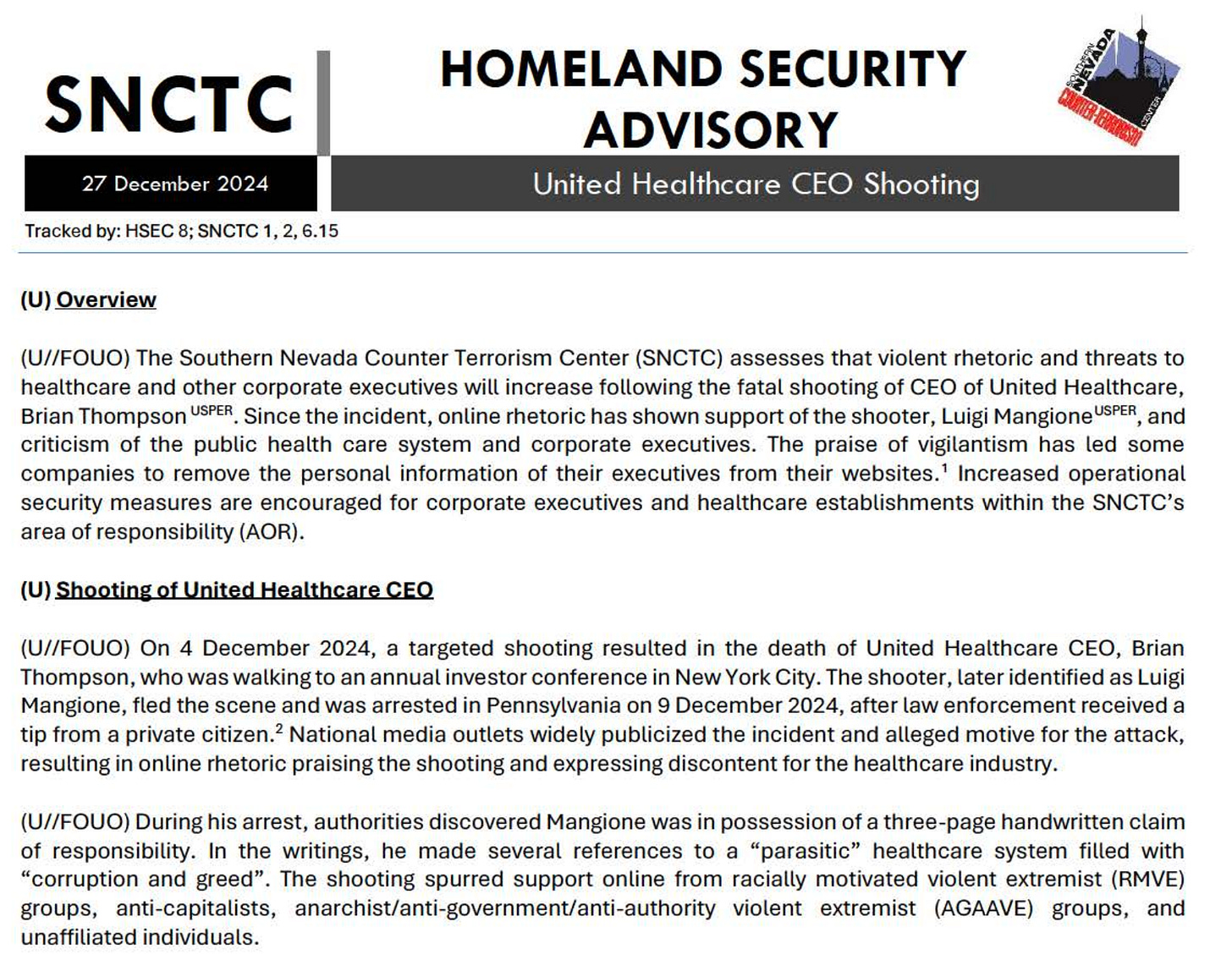
One way the Nevada report distinguishes itself is with its inclusion of a screenshot of a photoshopped meme depicting Bugs Bunny and Daffy Duck standing in front of a notice that reads “CEO SEASON.” Marked “FOUO” (For Official Use Only), the image is attributed to unspecified social media accounts on X.
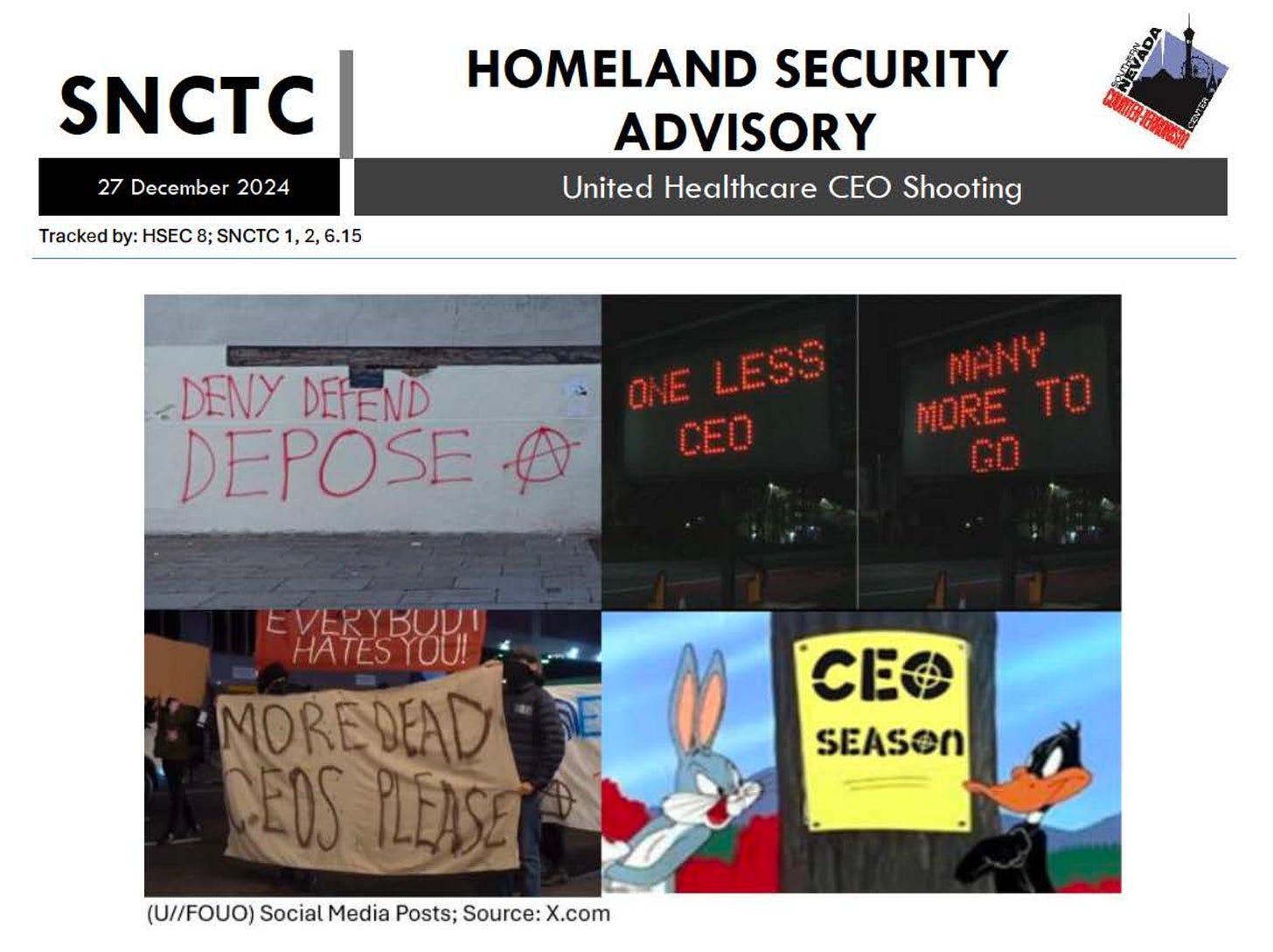
When New York Governor Kathy Hochul touts more funding for “social media intelligence analysts & counterterrorism intelligence analysts,” as she did earlier this month, reports like these are what those taxes dollars are going towards.
As absurd as these reports might seem, they’re taken seriously not just by law enforcement, but also the media outlets they’re routinely leaked to. They are also frequently provided to private industry, which are given alarmist recommendations like these:
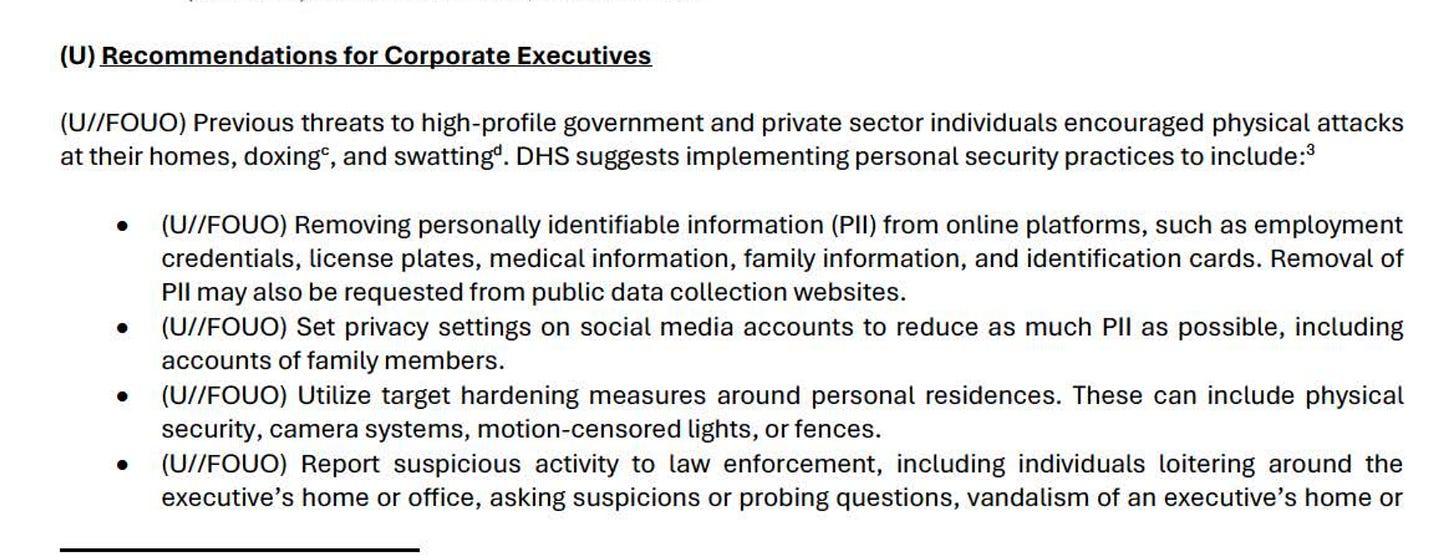
Several health insurers did end up scrubbing senior leadership from their websites, perhaps following the sage counsel of these fusion centers. Apparently someone motivated enough to kill wouldn’t be motivated enough to google around a bit.
“Law enforcement is panicking over widespread support for Mangione, but it should be no surprise,” Ryan Shapiro, executive director of Property of the People, said. “Of course people are angry watching loved ones needlessly suffer and die so a handful of executives can buy second yachts.”
Or so governors can buy a second team of fusion center analysts?
In his manifesto, Mangione suggested the health insurance industry had “gotten too powerful, and they continue to abuse our country for immense profit because the American public has allowed them to get away with it.” He could just as easily have been describing the national security state.










